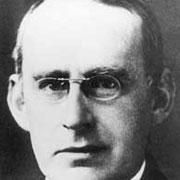There was once a time when the history of science was told as a succession of Eureka moments in which strokes of experimental or theoretical genius led the scales to fall from our eyes, banishing old, false ideas to the dustbin.
Now we are encouraged to think that things don't happen that way at all. Instead, scientific knowledge advances messily, one theory vanquishing another in a process that involves leaps of faith, over-extrapolated results and judicious advertising. Antoine Lavoisier's theory of oxygen's role in combustion, Friedrich Wöhler's synthesis of urea (alleged to have killed off 'vitalism', the idea that organic matter could only come from living things), Louis Pasteur's theory that germs lie behind disease — all have been picked apart and reinterpreted this way.
Generally speaking, it is probably a more accurate reflection of how science really works, and it is certainly preferable to the Whiggishness of classic popular 'histories' such as Bernard Jaffe's Crucibles: The Story of Chemistry. At its most extreme, however, this sceptical approach can lead to claims that scientific 'understanding' changes not because of a deepening insight into the nature of the Universe but because of social and cultural factors.
Victim of revision
One of the more recent victims of this revised thinking is the 'confirmation' of Einstein's theory of general relativity, offered in 1919 by the British astronomer Arthur Eddington. Eddington reported observing the bending of light during a total eclipse, as predicted by Einstein. But some have claimed that he cooked his books to make sure that Einstein was vindicated over Newton, because Eddington had already decided that this must be so.
 British astronomer Arthur Eddington: guilty as charged?Wikimedia Commons
British astronomer Arthur Eddington: guilty as charged?Wikimedia CommonsNow, even physicists who celebrate Einstein's theory commonly charge Eddington with over-interpreting his data. In his Brief History of Time, Stephen Hawking says of the result that: "Their measurement had been sheer luck, or a case of knowing the result they wanted to get." Hawking reports the widespread view that the errors in the data were as big as the effect they were meant to probe. Some go further, saying that Eddington deliberately excluded data that didn't agree with Einstein's prediction.
Is that true? According to a study1 by Daniel Kennefick, a physicist at the University of Arkansas in Fayetteville, Eddington was in fact completely justified in asserting that his measurements matched the prediction of general relativity. Kennefick thinks that anyone now presented with the same data would have to share Eddington's conclusion.
The case in question
Einstein's theory of general relativity asserts that gravity is the result of a distortion of space-time by massive objects. Even light cannot ignore this remoulding of space. So the theory predicts that light rays from distant stars should bend slightly as they skim past the Sun. We can't hope to see this 'shifting' of starlight close to the edge of the blazing Sun. But when it is blotted out during a total solar eclipse, the bending should be visible.
This is what Eddington set out to investigate. He drew on two sets of observations made from equatorial locations during an eclipse in 29 May 1919. One was at the town of Sobral in Brazil, the other on the island of Principe, off Africa's west coast.
With the technology then available, measuring the deviation of starlight was very challenging. Newtonian physics predicted a bit of bending too, so the matter hinged on an exact measurement of star positions.
The results were conflicting, and some have claimed that Eddington ignored the data that showed little bending (thus supporting Newton), and instead concentrated on the data that matched Einstein's prediction.
Why would Eddington have done this? One possibility is that he had simply been won over by Einstein's theory, and wanted to see it 'proved'. But some have suggested that Eddington's Quaker belief in pacifism predisposed him to see a British proof of a German theory as an opportunity for post-war reconciliation.
Accusations
This claim of unfair data selection was made particularly strongly in a 1980 paper2 by philosophers of science John Earman and Clark Glymour. And their position was publicized by Harry Collins and Trevor Pinch in their 1993 book The Golem: What Everyone Should Know About Science3.
Kennefick has examined these claims in detail. The data from Principe, which Eddington himself helped to collect, were poor. Because of cloudy weather, only two of the photographic plates were useable, and each contained just five stars. When Eddington gave a public talk about these measurements in September, before he had analysed them fully, he admitted that the deflection of starlight seemed to fall between the predictions of the newtonian and relativistic theories. He clearly needed the Sobral data to resolve the matter.
The Sobral data consisted of two sets of measurements. One set was made with an 'astrographic' lens with a wide field of view, and the other with a 10-centimetre lens borrowed from the Royal Irish Academy. The data taken with the astrographic lens were expected to be more reliable — and it seems that they supported the non-relativistic prediction. This is where the charges of data-fudging come in, because some asserted that Eddington ditched those results and focused instead on those collected with the 10-centimetre lens, which showed 'full deflection', and thus supported Einstein's view.
The astrographic data from Sobral were indeed discarded, for technical reasons, which Eddington and his colleagues describe in their full account4 of the expeditions. Kennefick argues that the reasons were sound — but he also shows that Eddington seemed to have played no part in that decision. He was merely informed of the analysis of the Sobral plates by the expedition leader, astronomer Frank Watson Dyson of the Greenwich Observatory in London. Dyson, however, was cautious of Einstein's theory (as were many astronomers, who struggled to understand it), suspecting it was too good to be true. So it's not obvious why Dyson would fiddle with the data.
In any event, an analysis of the plates in 1979 showed that, together, they supported Einstein's prediction rather well, and that the original teams made assumptions in their calculations that were justified even if they couldn't be conclusively supported at the time.
A good story
Kennefick says that the 'Eddington fudge' story has mutated from the sober and nuanced analysis of Earman and Glymour to a popular view that the 'victory' of general relativity was nothing but a public-relations triumph. It is now sometimes cited as a reason why scientists should not be trusted.
Kennefick admits that Eddington may well have had his biases — but there is no evidence that he indulged them.
ADVERTISEMENT
It's a salutary tale for all. Scientists need to be particularly careful that, in their eagerness to celebrate past achievements and to create coherent narratives for their disciplines, they do not construct triumphalist myths that invite demolition. (Crick and Watson's discovery of the structure of DNA is shaping up as another such candidate.)
The motto of the Royal Society — Nullius in verba, loosely translated as 'take no one's word' — is often praised as an expression of science's guiding principle of empiricism. But it should also be applied to tellings and retellings of history — we shouldn't embrace cynicism about how scientists do their work just because it's become cool to knock historical figures off their pedestals.
Visit our eddingtonwas_innocent.html">newsblog to read and post comments about this story.

